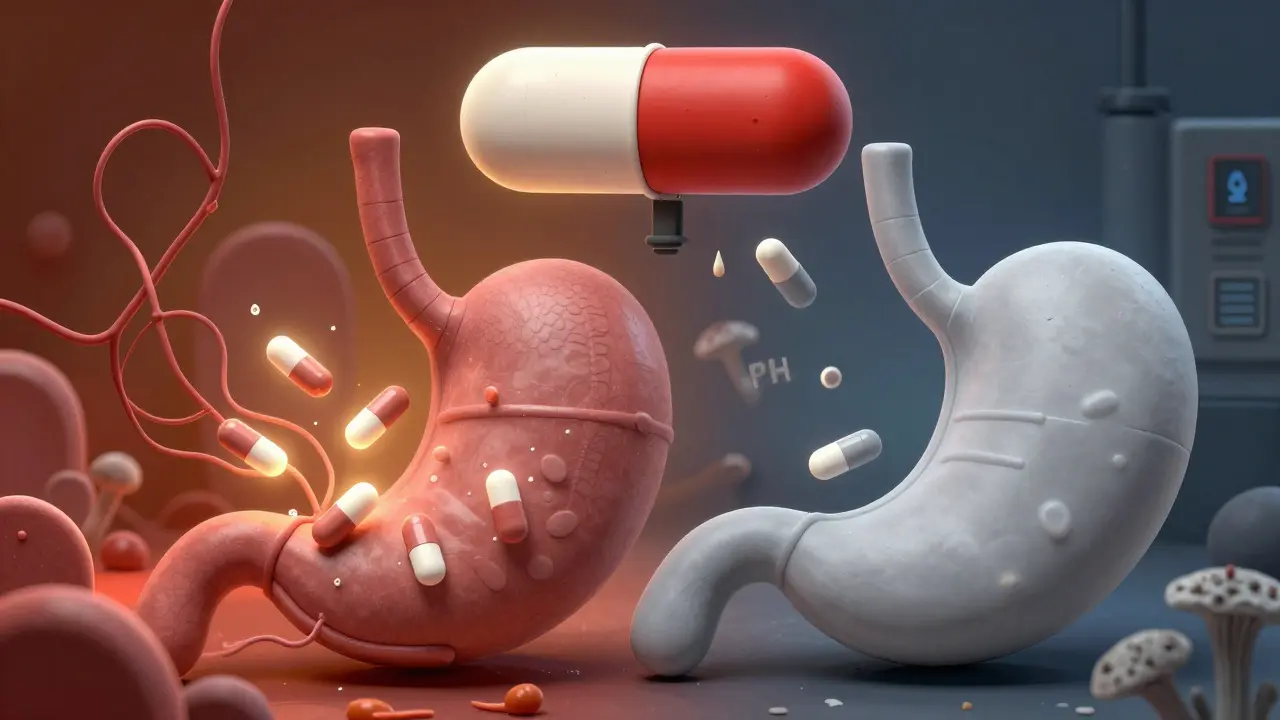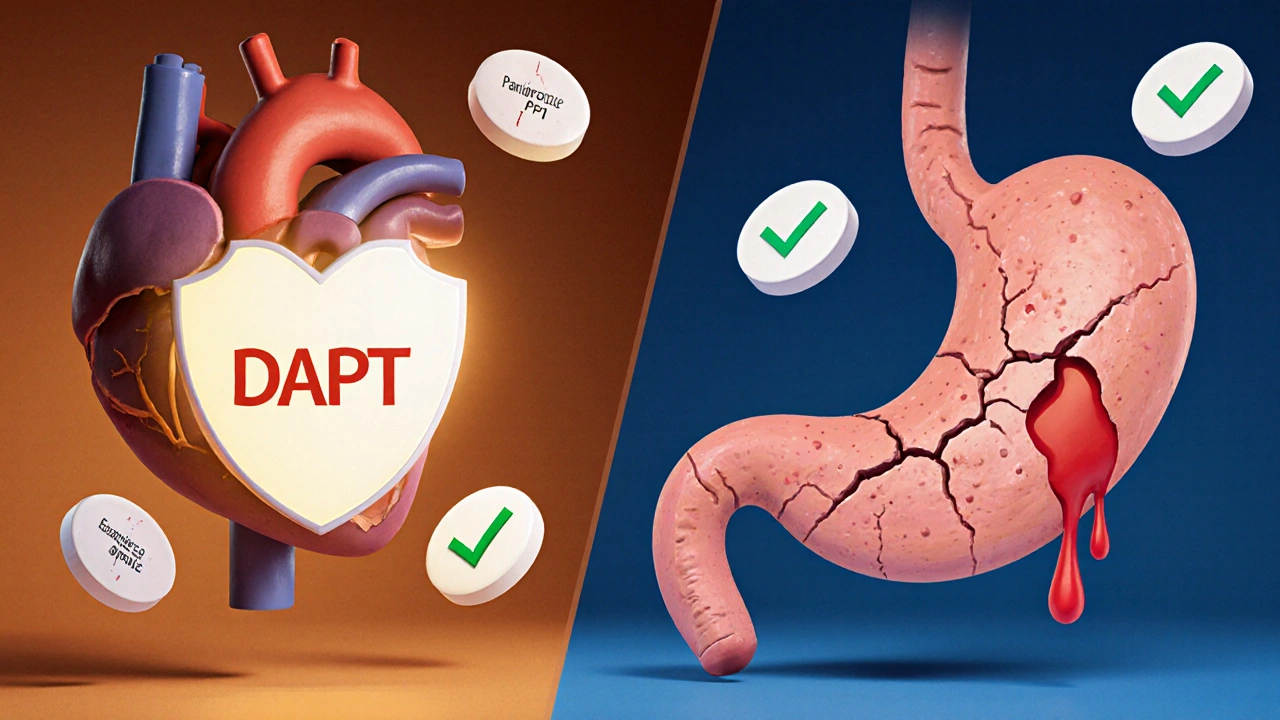Proton Pump Inhibitors: What They Are, How They Work, and What You Need to Know
When your stomach makes too much acid, it can burn—literally. That’s where proton pump inhibitors, a class of medications that block the final step of acid production in the stomach lining. Also known as PPIs, they’re one of the most prescribed types of drugs for acid-related conditions like GERD, ulcers, and heartburn. Unlike antacids that just neutralize acid after it’s made, PPIs stop the acid at the source. They target the proton pumps in stomach cells—the tiny machines that pump hydrogen ions into the stomach to create acid. Shut those down, and acid production drops dramatically.
People use PPIs for more than just occasional heartburn. If you’ve been diagnosed with GERD, a chronic condition where stomach acid flows back into the esophagus, causing irritation and damage, your doctor might recommend a PPI to heal the lining and prevent complications. They’re also used for peptic ulcers, sores in the stomach or upper small intestine, often caused by H. pylori bacteria or long-term NSAID use. In some cases, PPIs are part of combo therapy to kill the bacteria and let the ulcer heal. Even people on long-term aspirin or ibuprofen may take them to protect their stomach lining.
But they’re not harmless. Long-term use has been linked to nutrient deficiencies—especially magnesium, calcium, and vitamin B12—because stomach acid helps break down and absorb these nutrients. Some studies suggest a higher risk of bone fractures or kidney issues with extended use, though the evidence isn’t always clear-cut. The key is using them only when needed and at the lowest effective dose. Many people take them for months or years without realizing they might not need them anymore. Stopping suddenly can cause rebound acid hypersecretion, making heartburn worse for a while. That’s why tapering off under medical guidance often works better than quitting cold turkey.
What you’ll find in the posts below isn’t just a list of drug facts. It’s a collection of real-world insights: how PPIs interact with other meds, how to tell if you’re still needing them, what alternatives exist, and how to manage side effects without jumping back on the pill. You’ll see connections to topics like medication adherence, drug interactions, and long-term health impacts—all tied back to how your body handles acid control. Whether you’re just starting out on a PPI or have been on one for years, these posts give you the practical, no-fluff info you need to make smarter choices.


